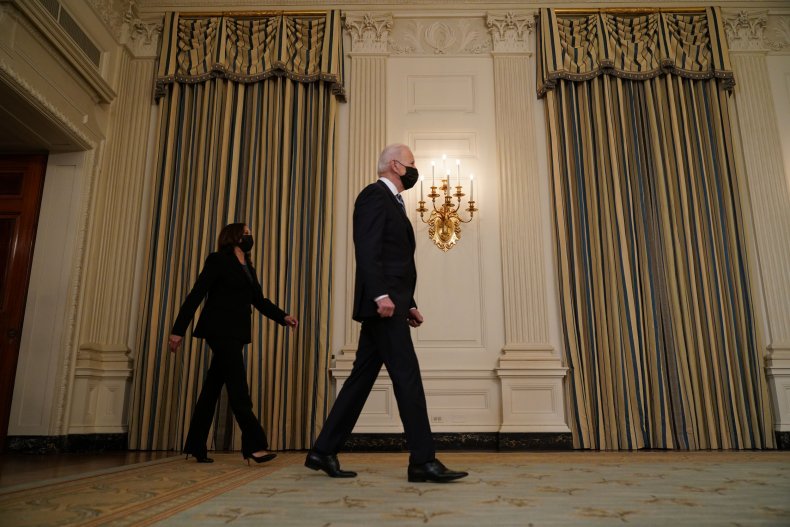[ad_1]
President Joe Biden’s administration has launched a major offensive as it tries to build support for his proposed $1.9 trillion coronavirus relief package—while Republican lawmakers have largely balked at the massive price tag.
“The president and vice president are engaging directly with members [of Congress] and have had a number of productive conversations that will continue and pick up in the days ahead,” Biden press secretary Jan Psaki told reporters Wednesday.
Detailing the all-out effort that has consumed the White House during Biden’s first week in office, Psaki said, “Senior White House officials are also engaging with—not just congressional leaders—but also state and local officials, constituency groups and others to gather feedback on the proposal.”
Biden counselor Steve Ricchetti and legislative affairs director Louisa Terrell, who’s known for her dealmaking prowess during the Obama administration, are “quarterbacking” the broad legislative push, Psaki said. They are holding “dozens of conversations” with members “to understand their priorities and receive their feedback,” she added.
The president’s chief of staff, Ron Klain, and senior adviser Anita Dunn have also spent recent days talking directly to U.S. House members and senators.
The National Economic Council, the Domestic Policy Council and staff from the Treasury Department have met with key House and Senate committees this week. NEC Director Brian Deese has held one-on-one meetings and gatherings with several caucuses, and Biden’s COVID czar, Jeff Zients, has joined the effort.
“It’s a top priority for President Biden,” Psaki said.
Congress passed a $2.2 trillion relief package last March and a $900 billion follow-up last month, but Biden and Democratic leaders in Congress want more money and programs to address continuing needs during the pandemic and shore up the economy. COVID-19 has killed more than 425,000 people in the United States. Biden’s plan calls for additional funding for vaccines and testing, more health care workers and other recovery measures, including safely reopening schools.
House Speaker Nancy Pelosi recently told reporters that she expects the next relief package will hit the House floor in early February for debate. But the amount the federal government has already spent in response to the pandemic has prompted some Republicans in Congress to voice opposition to the scope of Biden’s proposal.
“In less than one year, Congress has spent $3.4 trillion on direct COVID relief aid and nearly doubled the entire federal budget,” Senator Pat Toomey, a Pennsylvania Republican who is on the Budget and Finance committees, said in a statement. “Blasting out another $2 trillion in borrowed or printed money—when the ink on December’s $1 trillion aid bill is barely dry and much of the money is not yet spent—would be a colossal waste and economically harmful.”
Senator Susan Collins, who was among more than a dozen lawmakers who took part in a bipartisan call with Deese over the weekend, also isn’t convinced that the $1.9 trillion package is appropriate.
“While I support prompt additional funding for vaccine production, distribution, and vaccinators, and for testing, it seems premature to be considering a package of this size and scope,” the Maine Republican said in a statement after the call. “Following the briefing, it was not clear to me how the Administration came up with its $1.9 trillion figure.”
Psaki said a large public opinion campaign is aimed at constituents to try to build support for Biden’s package proposal.
“This isn’t just about speaking to elected officials. It’s also about speaking to the country and building support and educating and engaging with leaders across the country,” she said.
That effort has included overtures to governors, civil rights groups, labor leaders, youth advocacy groups and others, Psaki said.
“Our team continues to build support for the American Rescue Plan, as more and more voices across the country recognize the urgent need to get American families the help they need,” she said.

MANDEL NGAN / AFP/Getty
[ad_2]
Source link